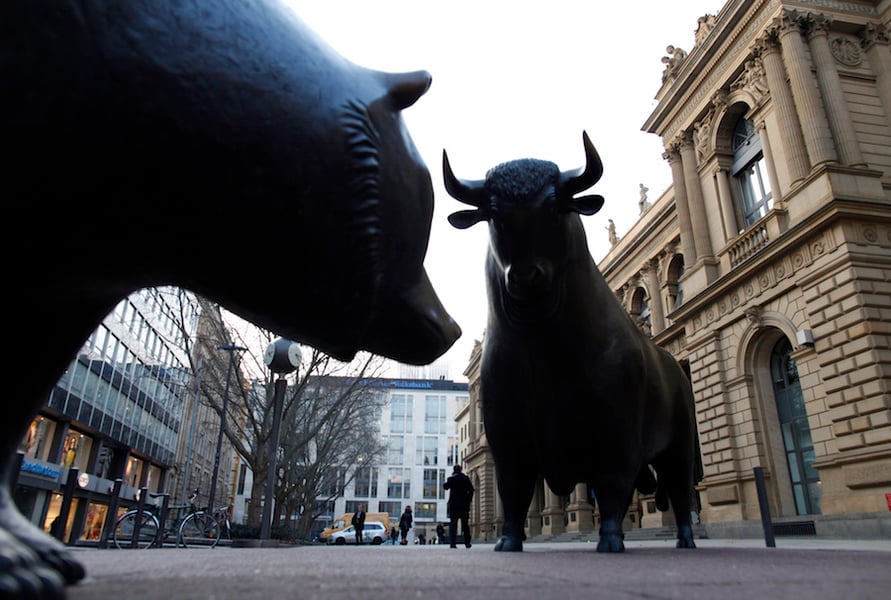Emerging markets funds are in a bear market. If you've put your clients in such a fund, the thing to do is keep your expenses low, rebalance periodically and explain your strategy carefully to clients.
The average diversified emerging markets fund is down 20.42% the past 12 months, which fits the definition of a full-blown bear market. The worst performer among open-end funds,
PIMCO RAE Fundamental Plus C (PEFCX), has shed 33.65%.
The damage from the most recent bear market means that the average emerging markets fund has lost an average 5.93% a year for the past five years. And that emphasizes the two drawbacks with emerging markets funds: They're enormously volatile, and they are highly correlated to the U.S. market in bad times.
(More: As stock market enters correction, some advisers look to buy)
CHASING PERFORMANCE
Unfortunately, most people, including investment advisers, don't buy emerging markets funds when they're down 20% or more. It's when returns are high and correlations with the U.S. markets are low that emerging markets get the most attention from investors and advisors.
“No one says,” 'I'm buying an emerging markets funds because I'm chasing performance,'” said William Bernstein, author of Rational Expectations: Asset Allocation for Investing Adults. “They say, 'I'm buying non-correlated assets.”
Nevertheless, when U.S. markets fall, emerging markets typically fall harder and correlations between the two markets get stronger. And things could always get worse: After all, the Vanguard FTSE Emerging Markets ETF shed 52.77% in 2008. “They get very, very cheap from time to time,” Mr. Bernstein said.
BUYING CHEAP
From a long-term investment perspective — and from the client's perspective — the best solution is to invest in a low-cost index fund and rebalance your portfolio periodically when your recommended asset allocation gets out of whack. At least you'll be buying cheap and selling dear, and being proactive about saving your client money.
Steve Janachowski, CEO of Brouwer and Janachowski, a Tiburon, Calif.-based Financial planning firm, is cautiously optimistic about emerging markets. “They're arguably cheap,” he said. “Emerging markets tend to be on either the top or the bottom of the performance rankings, and they have been on the bottom for quite some time.”
Or you could search for a fund that seeks to avoid some of the emerging markets' current pitfalls. For example, Mr. Janachowski's caution stems from the bear market in commodities and the effects lower raw materials prices has on some countries, such as Brazil. He's also leery of centrally controlled economies, such as China.
REWARD AND RISK
To alleviate some of those worries, Mr.Janachowski is currently using Baron Emerging Markets fund (BEXFX), which shares his views on commodities and centrally controlled economies, although it doesn't avoid China entirely. The fund has a 1.5% expense ratio, and has fallen an average 0.13% a year for the past five years. “It's expensive, but it has done well,” he said.
Another strategy might be to pick a well-diversified global or international fund, many of which have some emerging markets stocks. For example, Vanguard Total World Stock ETF charges just 0.17% in expenses and has a 6.18% exposure to emerging markets. Vanguard Total International Stock Fund (VGTSX), charges 0.19% and has 13.55% in emerging markets stocks.
Explaining why you have a client in an emerging markets fund during a bear market isn't fun, and investing in broadly diversified international funds may be one way to avoid that conversation. (You'll still have to explain international funds' subpar performance, however).
But rewards don't come without risks, and you'll have to talk to your clients about how much risk they can bear before you put them into any risky investment. Otherwise, you'll wind up being on the wrong end of the trade. “Investing is a process where wealth is redistributed to people with a strategy and can execute from those who don't and can't,” Bernstein said.







